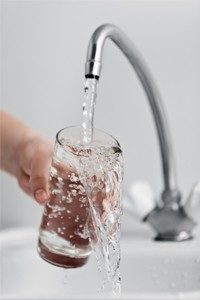 You stand to speak to a crowd of thousands–and your mouth is desert-dry. That’s normal. But under less stressful circumstances, a dry mouth is not normal. In fact, it’s cause for concern.
You stand to speak to a crowd of thousands–and your mouth is desert-dry. That’s normal. But under less stressful circumstances, a dry mouth is not normal. In fact, it’s cause for concern.
Saliva has a critical role in the health of your mouth and your body. It flushes out the plaque that causes tooth decay and periodontal disease and acts as a buffer against overly acid mouth.
Dry mouth, then, can lead to cavities—and to any of those sometimes serious disorders lately linked to periodontal disease. It can cause halitosis and make the tissue of your mouth vulnerable to infection. It can even create difficulties in speaking and eating.
While dry mouth occurs most often in the elderly, it’s more likely to result from their increasing use of medicines than from their advanced years. Anxiety and the use of alcohol or recreational drugs will dry up your mouth, as will antidepressants, antihistamines, chemotherapy, and radiation.
You can fight dry mouth by drinking eight glasses of water daily. That’s a good idea even if your mouth is not dry. Other anti-dry mouth responses: sugarless gum, sugarless lozenges, mouth-wetting agents.
There are new prescription products to combat dry mouth. If your mouth is dry, tell us about it—we can help!
